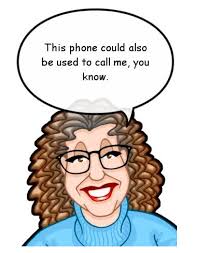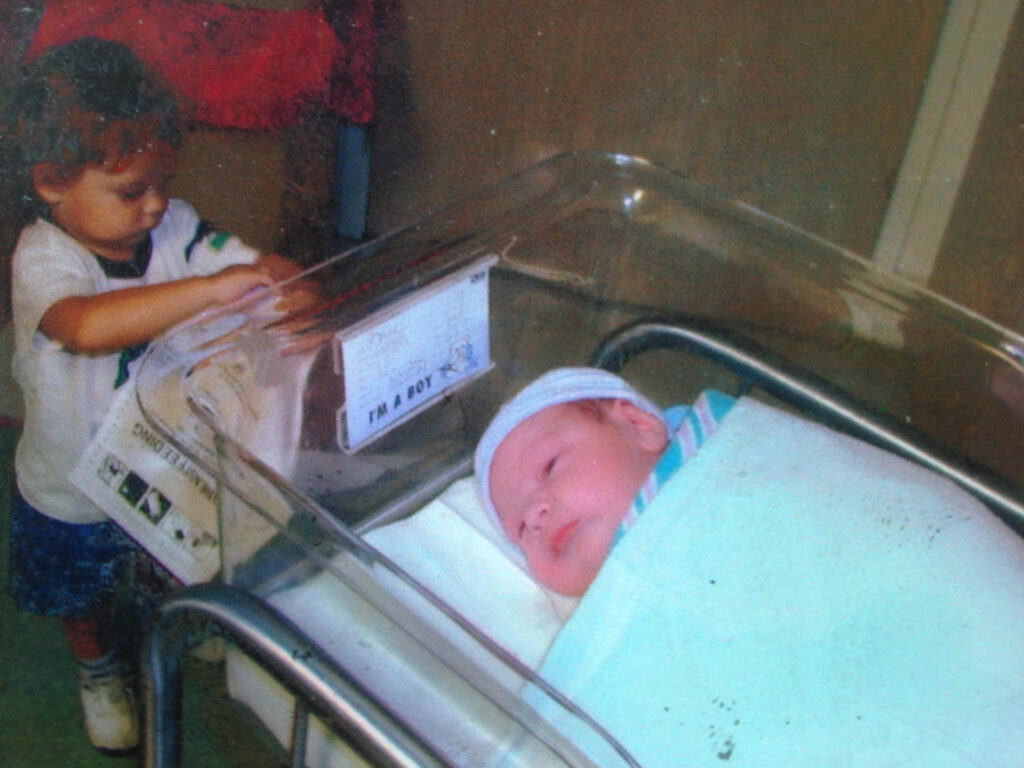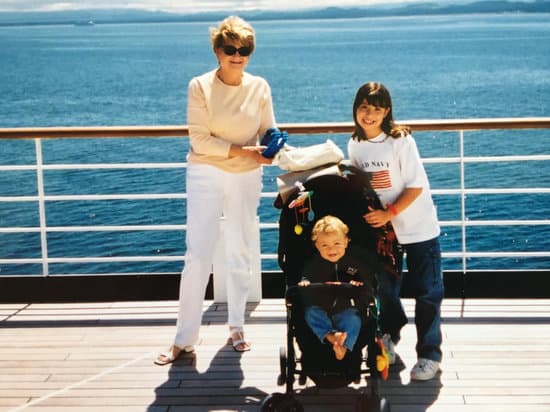A Jewish Mother will negotiate with G‑d on your behalf—and win.
Some call it prayer, but Jewish mothers are known to talk to the Master of the Universe much in the same manner as they talk to their husbands.
Perhaps you’ve heard of the Jewish mother who took her child for a stroll on a windy day along the seashore. The temperature was 65 degrees, of course, the child was neatly bundled in a warm coat, boots, a scarf, gloves, and a woolen hat.
Suddenly, a great wave roared in, soaking the mother and viciously sweeping away her little child into the sea.
The mother raised her arms to the heavens and cried out, “Oh my G‑d! How could you take my little boy away! Shall the Judge of the entire world then not do justice?”
Immediately, another wave came and swept the child back to shore. He was not wet.
The mother checked, and yes, the child was fine. His coat was fine. His boots were still on his feet, his gloves on his hands, his scarf … but, hold on …
The mother raised one hand up to heaven, the other pointing down to the child, and yelled, “He had a hat!”
Don’t worry about me. I’m just your mother…

A few years ago, I took my mother to the hospital for a surgical procedure. “Maybe I’ll die on the table,” she told me as we were driving.
“Doctors all say that this is pretty routine,” I replied. “You should be home tonight.”
“Steven, nothing is routine at my age. It’s fine if I die.”
“Will you stop? You’ll be fine. Tell ya what, if you come out of this, I’ll ask the doctors to see if they can find something else wrong with you. You can milk that for a while.”
“You’re not funny,” she told me for the umpteenth time in my life.
Two hours after they wheeled her away, the doctor walked into the waiting room.
He was in his scrubbs and writing something on a clipboard. “Well, I have good news and I have bad news.”
I jumped up from the sofa. “What’s the good news?”
“She’s going to be fine.”
“Thank God. What’s the bad news?”
He turned and began to walk toward the door.“She’s going to be fine.“
Driving home the following afternoon, I could not resist turning to her. “I told you these guys knew what they were doing.”
She smirked. “Steven, one day I will die.”
I exhaled. “When you do, we’ll put on your headstone I told you I was sick.”
“You know you’re not funny.”
It’s my job to worry.
My mother never looked for sympathy. She just wanted a reason to be ill.
Several weeks after the operation, I stopped by her house.
“Hi. What’s going on?”
“Well, you’re not going to believe this. Your brother’s now sick.”
“And?”
“And nothing. He’s not doing well.”
I smiled, looked down, and bit my upper lip. “Wanna go to lunch? You can still worry about him when we eat. And I spoke with him. It’s a stomach ache from eating too much Chinese last night.”
She glanced at my attire. “Are you going to wear that shirt?”
“Mom, you bought me this shirt.”
“I bought you two shirts. What’s the matter, you don’t like the other one?”
When Reality sets in
Anxiety disorders affect nearly 44 million adults in the United States. I figure that’s all the Jews and about ten other people.
As Jews we are told, we can be happy, just not THAT happy. “When something good happens, think of something like the day Abraham Lincoln was shot,” the Rabbi who was about to marry my ex-wife and me said.
My mother lived that mantra to the nth degree. A terrific wife, mother, grandmother, great grandmother, and mother-in-law. Never ecstatic, but as she once told me, she was happy enough.
She passed away on August sixteenth. I received a call from my sister’s attorney, who informed me two months after her funeral.
It was cold. It was harsh. It was a reminder of where I am in my life with my family.
In October of 2014, my mother asked me to drive her to a doctor’s appointment. This was a different doctor’s visit. This was a visit to test her memory.
I sat and waited for her when she walked into a room to take memory tests. My mother schlepped her father to doctor appointments and was tough as nails when he died. She did the same with her mother until she died, putting on the same brave face. She took her sister to the doctor weeks before she died and sat with her husband in the Intensive Care Unit until she had to make the horrific decision to pull the plug on his life support days after grandson number seven arrived.

My mother was strong. She had to be. But she was aware things were not the same when my seven-year-old son came home after spending the afternoon with her and said, “Grandma lost her car keys. We found them in the refrigerator.”
It’s sad watching someone you love lose their mind and their sense of who they were. “Imprisoned in a rapidly shrinking brain” is how a doctor describes it. “As the patient’s brain slowly dies, they change physically and eventually forget who they are, who they were, and who their loved ones are. Patients can eventually become bedridden, unable to move and not able to eat or drink. There is nothing as tragic as a loved one caught in this battle against dementia/Alzheimer’s disease.”
My father passed away on July 6, 2000, two days after my older son’s bris. It was difficult trying to understand how a tragedy and a blessing took place within 48 hours. My mother did not flinch. She couldn’t. It was her job to keep the family together.
She was at the hospital when Alex was born. She left my father, drove across town, held my ex-wife’s hand and told her she would be fine. “Everything,” she said, “will be fine.”
Later that day she asked if I would drive with her to see my father and tell him about the birth. “He needs to hear from you he is a grandfather… again.”
Eighteen months later, at two o’clock in the morning, my ex-wife placed a phone call. “I just spoke with the hospital, I’m in labor.”
“I’ll be right over,” she said.
“Take your time. The hospital told me we don’t have to leave here until six-thirty at the earliest.”
“I never went back to sleep,” she told me, arriving at 5:45.
“Oh, well, I watched the football game last night and finished a bottle of scotch with my neighbor. I passed out after changing the sheets,” I said, closing the door.
“Steven, you’re unbelievable.”
“No sense everybody worrying. Alex won’t be up for a few hours, so I made some coffee.”
Andrew was born at ten-thirty.
Alex and my mother walked into the hospital at noon. They wheeled Andrew into the room moments later, where Alex promptly detached himself from his grandmother, walked over to his new baby brother and wheeled the bassinet into the hallway.

“Steven,” my mother said. “I did not teach him that.”
She knew the family history on both her side and my father’s side. She had stories about anyone who I asked about in family albums.
My mother was a warm, caring, sensitive person. She just masked it under her sarcastic wit.
When her husband of 47 years passed away, life took a toll. She never understood why the only man she ever loved had to be taken from her.
“All those years of smoking, Mom.”
“But he stopped so many years ago.”
“Too much damage. Too many years and too many cigarettes.”
She wanted him back so badly. I walked into her house with Andrew one day. “Who’s Grandma talking to?”
“Beats me. Mom, you here?”
“I lost my glasses yesterday. I knew I left them here. I looked all afternoon and couldn’t find them. And now I see they’re here. Your father’s playing games with me.”
I grimaced. “And they say I’m nuts.”
“Do you want something to eat?” she asked looking at Andrew.
And that was my mother. She would change the topic to food. If she had nothing in the house, we would go out, never addressing the situation at hand, but walking away full.
She talked about death with me. Never mine. Only hers. “If I ever get sick enough, let them kill me. Do not save me.”
“Mom, they can’t kill you when you have a cold.”
“If it’s worse, just tell them not to resuscitate.”
“Oy gevalt! I’ll keep it in mind.”
My mother introduced me to my wife. We married shortly after the introductions, and I was miserable until the divorce. My mother saw the misery in me and was torn. Should I divorce and not see my beautiful children every day, or should I stay and watch my wife rip apart my family regularly?
I stayed. I thought it was noble. I thought it was honorable. I thought it was the right thing to do. It was not. It weighed heavily on my mother and ripped me away from my siblings and friends.
I married my wife because my parents liked her. They say you marry your mother. Not me. Don’t get me wrong. My mother went back for a second helping of Jewish guilt.
Type “Jewish mother guilt trip” into Google and you’ll get more than seven million hits. “Jewish guilt trip” is even in the online Urban Dictionary, a site I visit to learn the new teenager lingo, where it is defined as “the course of action taken upon a Jew when one feels they need to get their way. A Jewish guilt trip is more powerful than anything in this universe and can be very dangerous if not used correctly. Jewish mothers use this power quite a lot. These are performed best by Jews.” Well, thank you, thank you very much. Hurray for us Jews and our apparently award-winning guilt trips!
My mother was nothing with guilt, compared to my ex-wife. Especially since my mother loved me.
My ex divorced me for religious reasons. She worshipped money and I didn’t have anymore!
But I digress. My mother helped to put a bandaid on my troubles, but knew it was only making things worse. I was accused of putting my mother ahead of my wife. That accusation disappeared whenever my ex-wife wanted to go to the Polo Club for dinner or I could not pay my mortgage and my mother was there to help.
I miss my mother. I miss her every day. I miss her phone calls and her terrible cooking. But the thing I really miss is telling her about my problems and her response. “Steven, let’s go out for lunch.”

